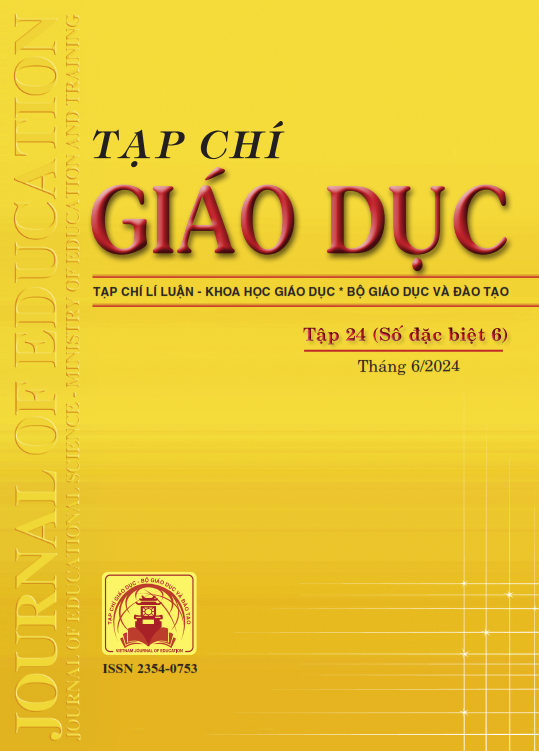Chuyển đổi số trong giáo dục đại học: Khái niệm, sự phát triển và kiến nghị giải pháp
Tóm tắt
In response to the strong ongoing demand for digital transformation, the Education sector, particularly higher education institutions, has identified its pioneering mission in carrying out this task. This contributes to shortening the process of innovation, enhancing the quality of education and training, and making a positive contribution to the national digital transformation process. Digital transformation aims to meet the new requirements for training high-quality human resources capable of creativity and quickly absorbing global scientific and technological advancements, serving the country's development in the current phase. It is necessary for universities in the current context to correctly understand digital transformation, correctly recognize the advantages, difficulties and limitations, thereby proposing some solutions to make the digital transformation process in higher education go smoothly, and at the same time help higher education institutions have a roadmap for implementing reasonable and successful digital transformation to quickly improve the quality and effectiveness of training. This is very important for universities in the current context.
Tài liệu tham khảo
Bond, M., Marín, V. I., Dolch, C., Bedenlier, S., & Zawacki-Richter, O. (2018). Digital transformation in German higher education: Student and teacher perceptions and usage of digital media. International Journal of Educational Technology in Higher Education, 15(1). https://doi.org/10.1186/s41239-018-0130-1
Bozhko, Y. V., Maksimkin, A. I., Baryshev, G. K., Voronin, A. I., Kondratyeva, A. S. (2016). Digital Transformation as the Key to Synthesis of Educational and Innovation Process in the Research University. In: Chugunov, A., Bolgov, R., Kabanov, Y., Kampis, G., Wimmer, M. (eds.) Digital Transformation and Global Society. Springer, Cham. https://doi.org/10.1007/978-3-319-49700-6_37
Bộ Khoa học và Công nghệ (2017). Báo cáo về Cách mạng công nghiệp lần thứ tư.
Bộ Thông tin và Truyền thông (2020). Cẩm nang chuyển đổi số. NXB Thông tin và Truyền thông.
Limani, Y., Hajrizi, E., Stapleton, L., & Retkoceri, M. (2019). Digital Transformation Readiness in Higher Education Institutions (HEI): The Case of Kosovo. IFAC-PapersOnLine, 52(25), 52-57. https://doi.org/10.1016/j.ifacol. 2019.12.445
North Carolina State University (2020). Leading the Digital Transformation (Dx) of Higher Education. https://committees.provost.ncsu.edu/leading-the-digital-transformation-of-higher-education/wp-content/uploads/sites/ 40/Leading-the-Digital-Transformation-of-Higher-Education-Task-Force-Report.pdf
Tay, H. L., & Low, S. W. K. (2017). Digitalization of learning resources in a HEI - A lean management perspective. International Journal of Productivity and Performance Management, 66(5), 680-694. https://doi.org/10.1108/ IJPPM-09-2016-0193
Thủ tướng Chính phủ (2020). Quyết định số 749/QĐ-TTg ngày 03/6/2020 phê duyệt “Chương trình chuyển đổi số quốc gia đến năm 2025, định hướng đến năm 2030”.
Thủ tướng Chính phủ (2021). Quyết định số 942/QĐ-TTg ngày 15/6/2021 phê duyệt Chiến lược phát triển Chính phủ điện tử hướng tới Chính phủ số giai đoạn 2021-2025, định hướng đến năm 2030.
Đã Xuất bản
Cách trích dẫn
Số
Chuyên mục
Giấy phép

Tác phẩm này được cấp phép theo Ghi nhận tác giả của Creative Commons Giấy phép quốc tế 4.0 .












